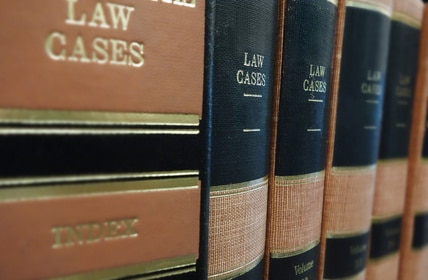Understanding the Function of a Post-Conviction Attorney in Seeking Justice After a Criminal Sentence
In the complex landscape of post-conviction lawful proceedings, the function of a post-conviction attorney is pivotal in browsing the course to justice after a criminal conviction - louisiana federal habeas corpus attorneys. As the pursuit of justice extends beyond the confines of initial proceedings, the function of a post-conviction legal representative emerges as a beacon of hope for those seeking to rectify oppressions and recover their civil liberties within the lawful system.
Post-Conviction Attorney's Investigative Work
Post-conviction attorneys participate in careful investigative job to discover new evidence, step-by-step errors, or transgression that might possibly bring about reversing a conviction. This investigatory phase is crucial in the post-conviction procedure as it aims to recognize any type of overlooked details or legal missteps that might have affected the end result of the preliminary test. Post-conviction attorneys look into instance documents, witness statements, and legal documents with a fine-tooth comb, looking for any type of discrepancies or irregularities that can be grounds for charm.
Via complete examination, post-conviction attorneys intend to shed light on possible oppressions that might have happened throughout the original trial. They might conduct interviews, speak with professionals, and testimonial forensic evidence to develop a compelling situation for their customers. By scrutinizing every element of the lawful procedures, post-conviction attorneys work relentlessly to reveal any kind of factors that may have influenced the judgment. Inevitably, their investigatory work plays a crucial duty in the pursuit of justice and the possible reversal of wrongful convictions.
Crafting Appeals and Petitions
In the pursuit of justice after a sentence, competent attorneys carefully craft allures and petitions to existing engaging debates for the reconsideration of lawful decisions. Crafting allures and applications calls for a deep understanding of the legal system, focus to detail, and tactical thinking. Post-conviction attorneys evaluate test records, identify potential errors or offenses of civil liberties, and develop legal arguments to challenge the conviction or sentence.
When crafting an appeal, legal representatives concentrate on highlighting lawful mistakes that may have affected the outcome of the instance. They look into situation regulation, statutes, and lawful precedents to support their debates. Petitions, on the other hand, may entail offering new evidence that was not offered during the test or showing adjustments in the regulation that call for an evaluation of the conviction.
Additionally, post-conviction attorneys must stick to stringent procedural regulations and due dates when filing allures and requests. They must present their debates clearly and persuasively to encourage the court to approve relief to their clients. With meticulous crafting of allures and petitions, post-conviction legal representatives make every effort to protect justice for people who have actually been wrongfully convicted or unjustly punished.

Pursuing Post-Conviction Alleviation
Post-conviction relief incorporates a variety of lawful devices developed to test the credibility of a conviction or sentence. Post-conviction attorneys play a critical role in browsing these intricate procedures, ensuring that all lawful alternatives are explored to remedy oppressions that might have occurred throughout the trial or sentencing phase.
One common type of post-conviction alleviation is filing an application for post-conviction relief, typically based on claims of inefficient assistance of guidance, prosecutorial transgression, newly uncovered evidence, or constitutional infractions. These applications require a thorough evaluation of the trial document, lawful study, and persuasive advocacy to encourage the court to grant relief. Experienced post-conviction legal representatives possess the skills and understanding necessary to determine sensible lawful claims, carry out examinations, and existing compelling arguments to protect alleviation for their clients. By faithfully pursuing post-conviction relief, these attorneys make every effort to correct miscarriages of justice and maintain the concepts of justness and due procedure in the criminal justice system (Lawyer).
Utilizing Forensic Proof
When testing a sentence or sentence, the critical utilization of forensic evidence can be an effective device in post-conviction legal process. Forensic evidence includes a wide variety of published here scientific strategies utilized to examine criminal offenses and establish facts in court. Post-conviction legal representatives can take advantage of forensic proof to challenge the validity of sentences by providing brand-new scientific searchings for that were not offered during the initial trial.

Participating In Sentence Modifications
Post-conviction attorneys might discover the opportunity of sentence adjustments as a lawful method to deal with out of proportion or unfair sentences bied far in criminal instances. Sentence modifications involve looking for adjustments to the regards to a defendant's sentence after a conviction has actually occurred. These alterations can include lowering the size of a sentence, changing the type of penalty enforced, or checking out alternate sentencing options.
Post-conviction legal representatives can seek sentence adjustments through various lawful systems, such as filing activities for sentence decrease, appealing for caring release, or bargaining appeal deals for lowered sentences. They need to very carefully review the conditions of the case, evaluate the legal premises for seeking a modification, and existing compelling debates to the court supporting the demand for a revised sentence.
Engaging in sentence adjustments needs a thorough understanding of criminal regulation, punishing guidelines, and the certain procedures associated with seeking post-conviction alleviation. Post-conviction lawyers play a crucial function in advocating for fair and simply outcomes by difficult sentences that are unduly harsh or do not line up with the principles of justice.
Final Thought
To conclude, the function of a post-conviction legal representative is essential in looking for justice after a criminal conviction. With investigatory job, crafting appeals and requests, seeking post-conviction relief, using forensic proof, and taking part in sentence adjustments, these attorneys play a crucial duty in advocating for their clients and making sure that their rights are supported within the criminal justice system. Their devotion and competence are crucial in navigating the complexities of post-conviction procedures and attaining a reasonable outcome for individuals dealing with criminal sentences.
Comments on “Lawyer's Overview to Habeas Corpus: Securing Your Flexibility and Legal rights”